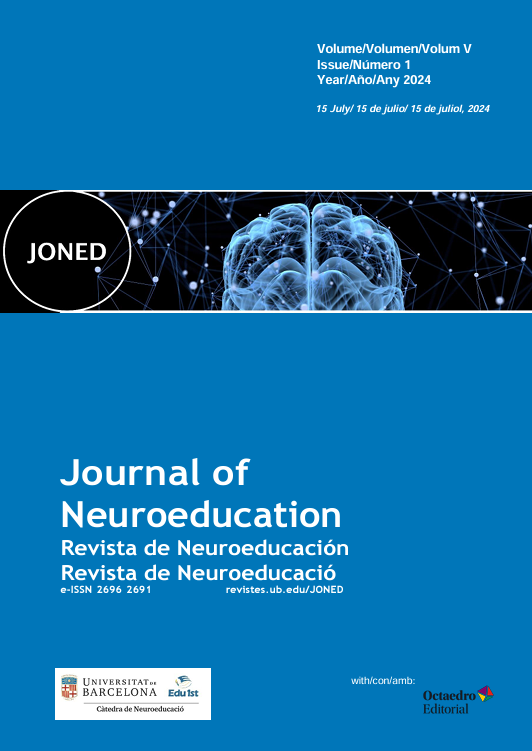La metodología SAPIENS entra al instituto (proyecto de investigación, 4º curso de la ESO)
BULLIFOUNDATION en el ámbito educativo
Keywords:
recerca, educació secundària, ESO, neurociència, diversitat, Sapiens, Bullifoundation, investigació, adolescents, batxillerat, projecte, educacióAbstract
It is committed to exporting, in the educational field, the project of the Sapiens methodology of ElBulliFoundation (created in the culinary world). This provides detailed and marked guidelines (at the same time flexible and adaptable to different situations) that allow you to start doing research on a topic despite not being an expert scientist and not having a defined hypothesis.
The aim of this practice is to test Sapiens, as a methodology that allows students of a 4th grade ESO diversity group to start doing scientific research. Provide more structured tools and resources with a new approach to analysis and studies.
We want to introduce this new style of research to the teaching staff, and make them experience it.
Following the curriculum set by the Generalitat de Catalunya, the 4th grade students of the diversity group (Unique Project - Agreement) have carried out the “Jobs Project” following this new structure.
It starts from qualitative, holistic research, which assumes a dynamic reality.
We work from a constructivist paradigm, starting from inductive logic. The meanings of events and their behaviors are observed and studied. You want to understand the context, the people and the interactions that take place there.
In a global way, it has been successful from all sides: the students have been guided and, all time, they knew how they could progress independently without asking for constant help or approval, they did not need individualized attention. They have developed their research and their oral communication at the end of the process following the steps offered by Sapiens.
Downloads
Downloads
Published
Issue
Section
License
Copyright (c) 2024 Montse Planas de Farnés

This work is licensed under a Creative Commons Attribution-NonCommercial 4.0 International License.
The authors who publish in this journal agree to the following terms:
a. Authors retain copyright and grant the journal the right of first publication
b. Texts will be published under a Creative Commons Attribution Non Commercial License that allows others to share the work, provided they include an acknowledgement of the work’s authorship, its initial publication in this journal and the terms of the license, and not for commercial use.



